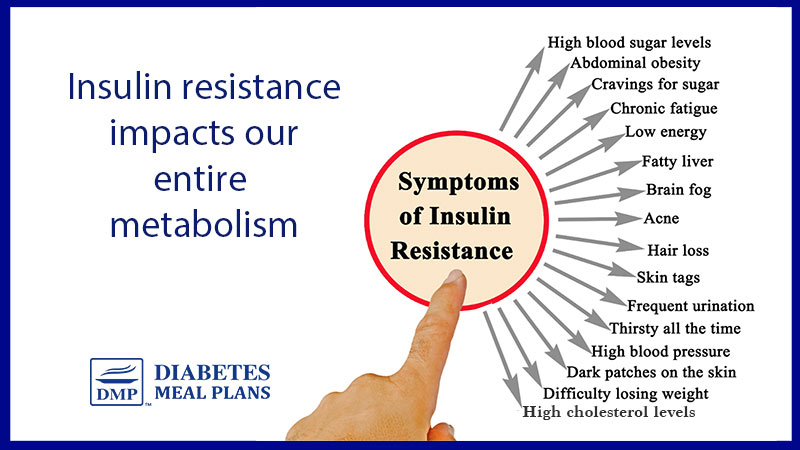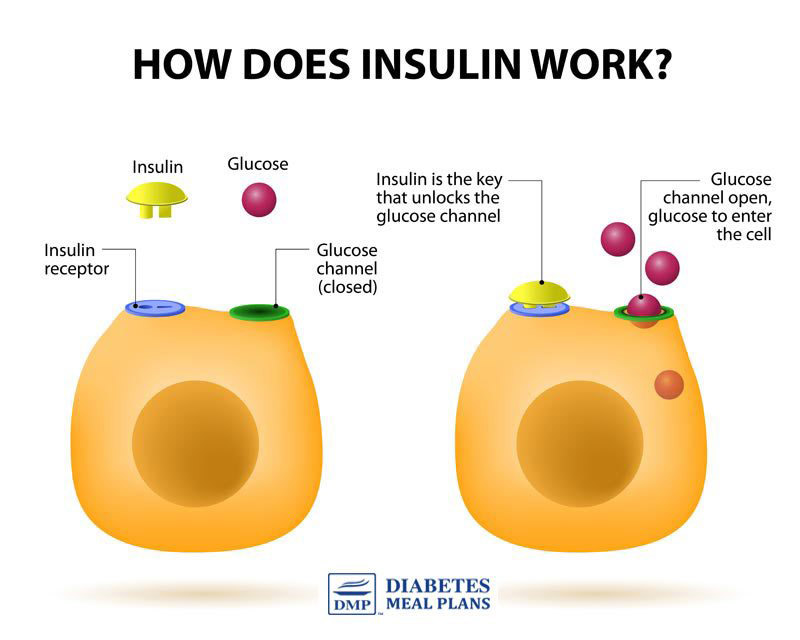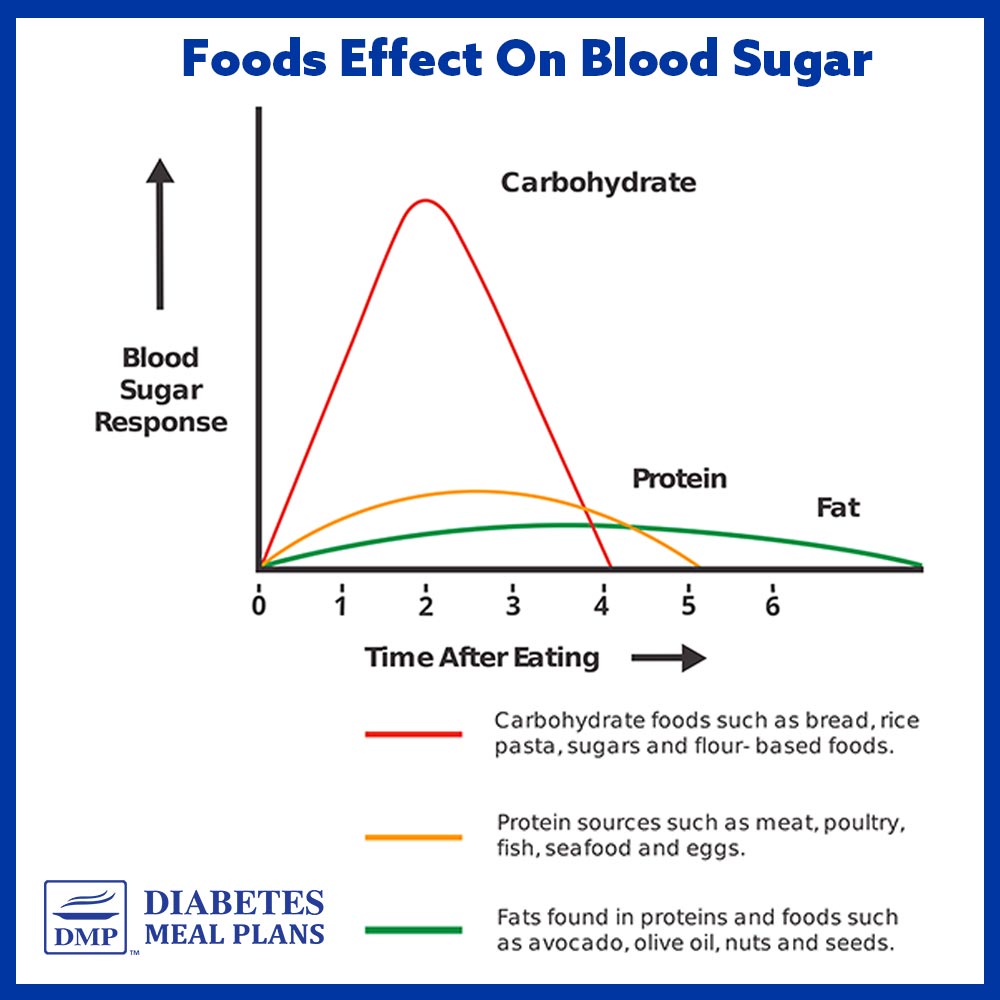Table of Contents[Hide][Show]
With type 2 diabetes or prediabetes, you may have heard of insulin resistance and wondered: Does insulin resistance cause weight gain?
Understanding the connection between insulin resistance and body weight is essential because it sheds light on how metabolic health impacts your ability to lose or maintain weight.
That’s important because if you’ve struggled to lose weight and feel like you’ve tried every diet under the sun, it can be a relief to know the underlying reason and what you can do to get that stubborn weight shifting.
Let’s explore the key role insulin plays in your body, how resistance develops, why weight gain can occur, and practical steps you can take to regain control of your health, and your weight!
What Is Insulin Resistance?
Insulin is a hormone produced by your pancreas that helps move glucose (sugar) from your bloodstream into your cells, where it’s used for energy.
Insulin resistance is defined as: a condition in which cells are no longer responding appropriately to circulating insulin.
When your cells become resistant to insulin, your pancreas works overtime to produce more insulin.
This can result in chronically elevated insulin levels (hyperinsulinemia), which is a hallmark of insulin resistance.
The problem with that is elevated insulin levels makes insulin resistance worse and also leads to high blood sugar levels, becoming a perpetuating cycle.
In fact, insulin resistance influences our entire metabolism!

The Role of Insulin Resistance in Type 2 Diabetes and Prediabetes
For the majority of people with type 2 diabetes or prediabetes, insulin resistance is a significant underlying factor.
In fact, insulin resistance is one of the most common causes of type 2 diabetes and prediabetes.
It typically develops before the onset of these conditions and contributes to high blood sugar levels by impairing the body’s ability to efficiently use insulin.

The Insulin Resistance and Weight Gain Connection
Insulin resistance can contribute to weight gain and weight gain further aggravates insulin resistance and promotes inflammation.
The link between insulin resistance and weight gain boils down to insulin’s role as a storage hormone.
While insulin helps regulate blood sugar levels, it also promotes fat storage in two key ways:
- Blocking Fat Breakdown: When insulin levels are high, your body is in “storage mode,” meaning it prioritizes storing fat rather than burning it for energy.
- Stimulating Fat Storage: Insulin encourages the conversion of excess glucose into fat, which is stored in fat cells.
In people with insulin resistance—that’s most people with type 2 diabetes and prediabetes, the persistently high insulin levels (hyperinsulinemia) can contribute to weight gain or make it harder to lose weight.
This creates a vicious cycle: increased body fat worsens insulin resistance, which in turn makes weight management even more challenging.
Insulin resistance also impacts other hormones involved in hunger and appetite control such as leptin and ghrelin, which can further complicate metabolism and weight control.

Does Weight Gain Cause Insulin Resistance?
The relationship between weight gain and insulin resistance is a two-way street.
While insulin resistance can lead to weight gain, carrying excess weight—particularly visceral fat (fat around your organs)—can worsen insulin sensitivity.
Fat tissue releases inflammatory molecules in the body that interfere with insulin’s action, creating a feedback loop that exacerbates both conditions.
Interestingly, not everyone who is overweight has insulin resistance, and not everyone with insulin resistance is overweight, although it is very common.
This suggests that while weight or obesity is an important factor, other elements like genetics, diet and physical activity levels also play a significant role.

How Do You Know If Insulin Resistance Is a Factor for You?
Insulin resistance can be assessed through various markers, such as:
- Fasting insulin levels: High levels may indicate your body is producing excess insulin to overcome resistance. Request a fasting insulin levels test from your doctor.
- HOMA-IR (Homeostatic Model Assessment of Insulin Resistance): This calculation uses fasting blood glucose and insulin levels to estimate resistance.
- Waist circumference and fat distribution: Central (abdominal) obesity is strongly linked to insulin resistance.
How to Break the Cycle
Insulin resistance and weight gain are not inevitable. You can take actionable steps to improve insulin sensitivity, support weight loss and improve your overall health.
And, if you’ve been struggling with weight loss, there is a way to speed up your metabolism.
Lower Blood Sugar and Insulin Levels
The key to shifting stubborn weight is we need to get blood sugar levels down AND we need to get insulin levels down as well.
The most important strategy to do this is your nutrition plan, followed by exercise and other lifestyle factors. But, prioritizing nutrition is key!
1. Focus on the T2Diet Approach
Our T2Diet is clinically proven to lower A1c, weight and medications, and that’s because it targets both blood sugar and insulin levels.
One primary macronutrient target is carbohydrates. Carbohydrates are the nutrient that influences blood sugar levels the most, compared to proteins and fats.

Eating fewer carbohydrates can significantly reduce insulin levels and improve insulin sensitivity.
Here’s what to do first:
- Prioritize non-starchy vegetables, proteins and healthy fats.
- Limit processed empty carbohydrates and sugars.
- Grab a free copy of our recommended food list.
Of course, it’s not all about carbs. It’s about focusing on good quality nutrition overall, so that your glucose levels come down and your insulin levels come down.
Then something magical happens…
- liver fat goes down and liver function improves
- pancreatic fat decreases
- insulin resistance decreases and insulin function improves
- inflammation decreases
- your overall metabolism improves
- weight loss suddenly becomes effortless
Reversing the cycle is exactly what we help people do in our programs.
You only have to listen to Wilma’s story or Lisa’s story to see how, with the right nutrition plan, weight loss happens effortlessly, without even thinking about it.
2. Incorporate Regular Physical Activity
Secondary to nutrition is exercise—our body was made to move!
Exercise is one of the most powerful tools for improving insulin sensitivity.
Both aerobic exercise (like walking or cycling) and resistance training (like lifting weights) help your muscles use glucose more effectively.
Even 30 minutes of moderate activity five times a week can make a big difference.
Key Takeaway
Insulin resistance can lead to weight gain and it can certainly make weight loss more difficult, but it doesn’t mean you’re destined to struggle forever.
By understanding the role of insulin in your body and taking proactive steps like adopting our T2Diet approach and exercising regularly, you can improve your insulin sensitivity, easily lose weight and take back control of your health.

Leave a Reply